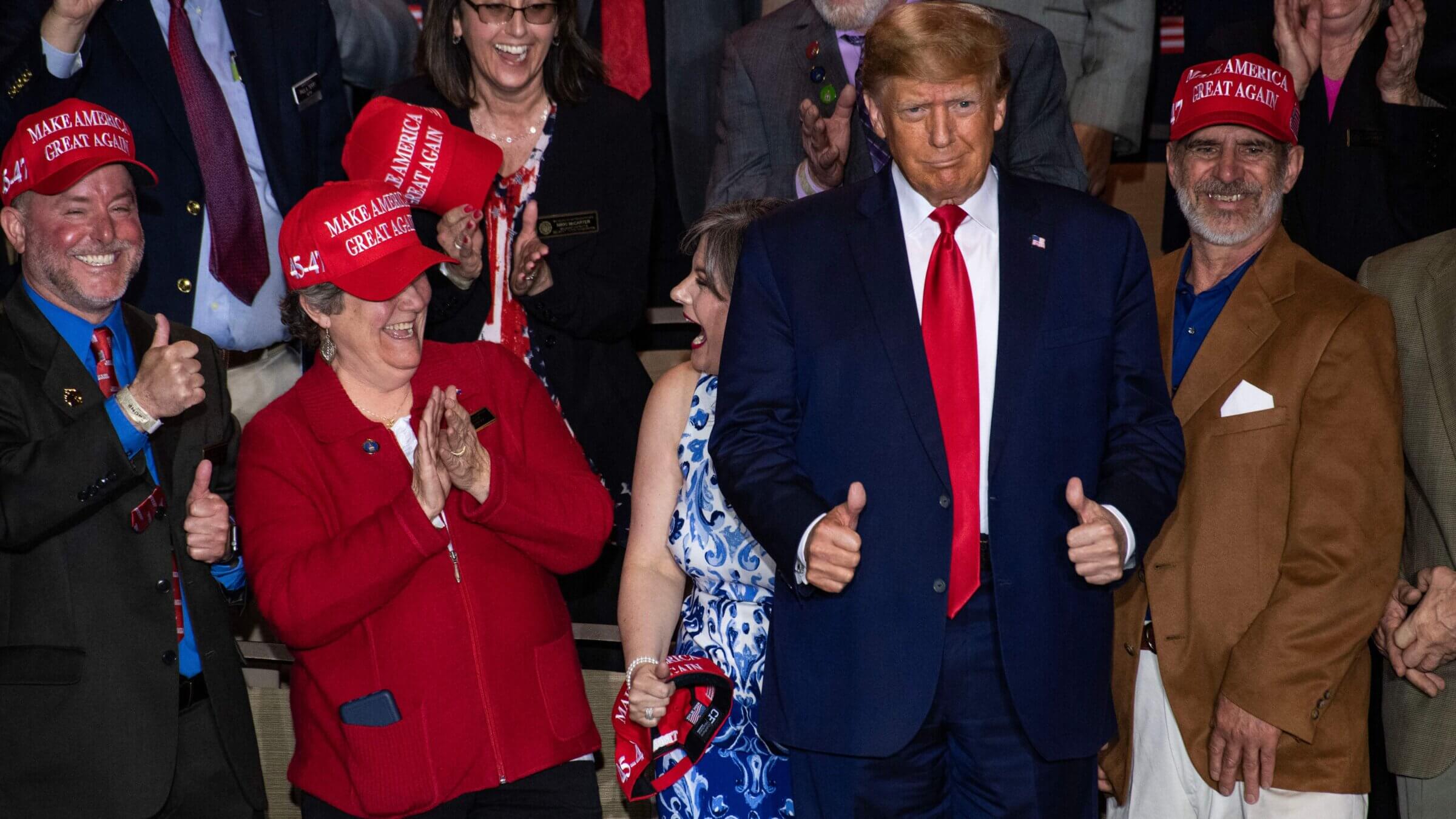Talmudic wisdom holds Trump to a higher standard than the Supreme Court
The Supreme Court just granted Trump presidential immunity, but the Talmud held leaders to a higher standard

Former US President Donald Trump with followers — showing the kind of influence that the rabbis of the Talmud worried about. Courtesy of Getty Images
If former President Trump incited a riot at the Capitol on Jan. 6, was he doing so as the sitting president, or as a private citizen? This may seem rather beside the point — the federal case against the president alleges that he was trying to overturn the election, which seems more pressing.
But this very Talmudic question is at the heart of the latest Supreme Court decision, which grants immunity for official presidential actions. The Court referred the case back to the lower courts, who must now decide whether his actions were private or official.
The Supreme Court often attempts to divine the intentions of the framers or the true meaning of the Constitution; similarly, the Talmudic rabbis attempt to divine the meaning behind the Torah and the intentions of God — same same, I guess.
But where many passages of the Talmud — and many court decisions — deal in the legalistic minutiae such as which exact actions and intentions might make you culpable if your ox damages someone else’s property, this most recent court decision is a philosophical treatise on the responsibilities and liabilities of leadership, and what leniencies are necessary to effectively rule.
These kinds of concerns also underlie nearly every passage of the Talmud. But where the Supreme Court seems to have concluded that there is a lot of wiggle room for presidents, the Talmud holds them even more liable than the average Yosef.
The rabbis teach that the powerful and learned — kings and priests — bear much greater responsibility than the everyday person, who might simply not know that they’ve broken the law and can be forgiven their trespasses, provided they had good intentions. Leaders, however, are expected to know what they’re doing.
The Talmud gives an example: An unlearned man who realizes he is having impure sex can withdraw immediately, whereas a learned man must know that the withdrawal is pleasurable as well and must freeze until he can withdraw without pleasure.
The rabbis knew that they were asking a lot from leaders, and it deals repeatedly with the reality that proximity to power is often a temptation. Because of their propensity to corruption, priests and leaders are held to a higher standard to prove their propriety; when gathering money for temple upkeep, for example, priests were forbidden from wearing any garment in which they could hide coins — they couldn’t even curl their hair, lest they manage to tuck a few shekels into their tresses.
The crux of the Talmud’s take on leadership is that everyone is beholden to the laws of God, rulers most of all. Their propriety is of utmost importance because their actions are so visible.
Therefore, in the eyes of the Talmudic sages, there should be no immunity for leaders; they must atone for their sins like anyone and, in fact, be far more careful not to err lest they lead astray an entire community.
It’s the sort of concern about corruption that runs through Justice Sonia Sotomayor’s dissent on the immunity decision; like the rabbis, she worries that presidents will feel emboldened to do anything to enrich themselves. The rabbis responded to this concern with guardrails; the Supreme Court has taken them down.
But the Supreme Court didn’t remove all avenues for legal enforcement over the president — only over those done in an official capacity. Crimes committed as a private citizen are still grounds for punishment, and so the prosecution against Trump must simply prove that any attempts to undermine the 2020 election were done in his role as an everyday American, not as the president.
And worry not — the Talmud has plenty of wisdom to offer here, too. In fact, there’s an entire tractate, Eruvin, devoted to demarcating the division between public and private space. On Shabbat, it is forbidden to carry things in public spaces; it is, however, allowed within private ones, and the rabbis went to great pains to differentiate the two.
The rabbis understood the danger of confusion between public and private realms — breaking Shabbat was a serious crime. So they litigated the requirements of an eruv, a boundary marker between public and private space, to make sure everyone knows which is which.
If only social media had those same markers, Trump’s legal responsibility for his actions on Jan. 6 would be far more clear.






















